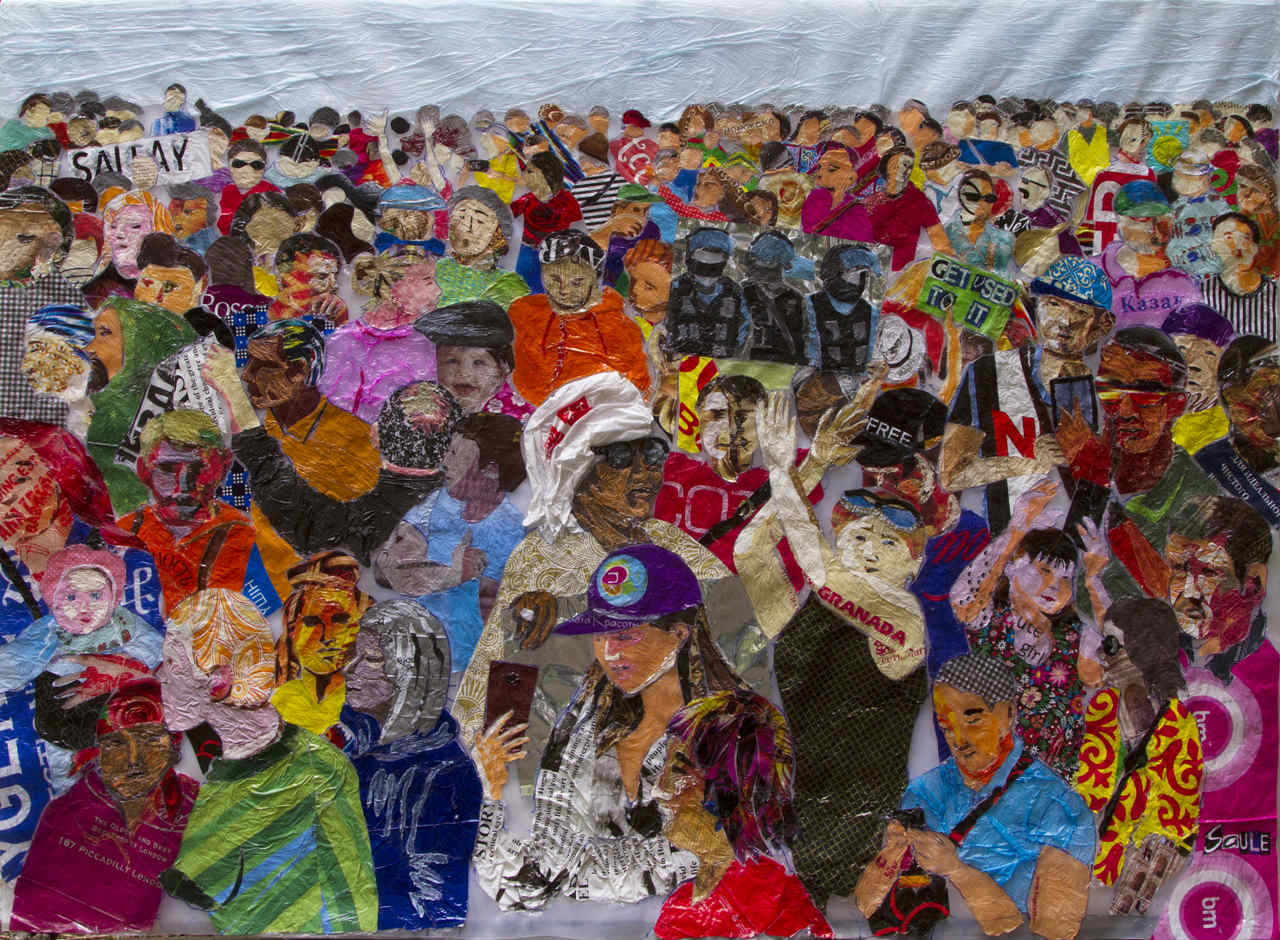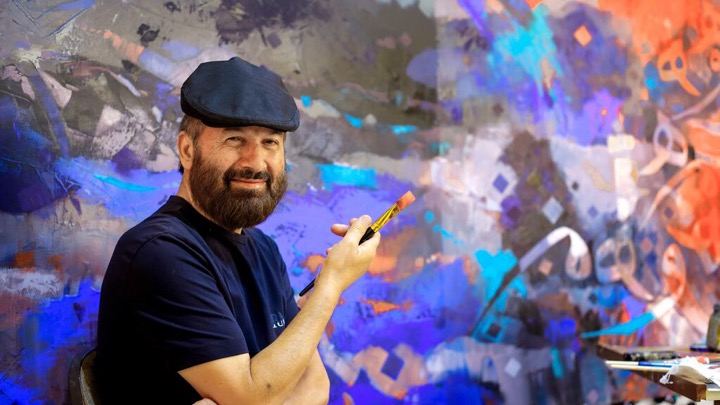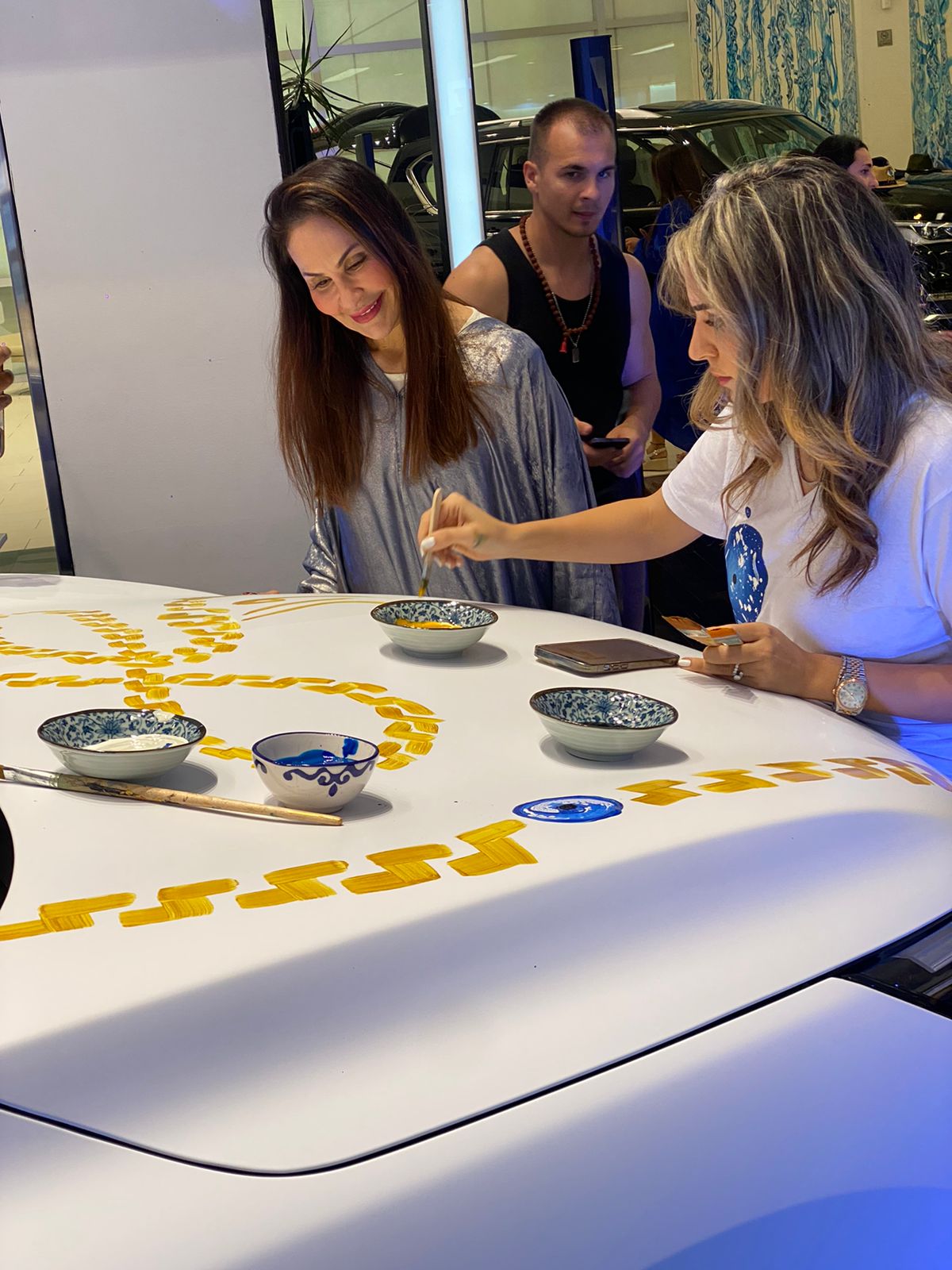Andakulova Gallery is delighted to present the artworks of Timur D’Vatz in its gallery space. The opening for this latest exhibition will be held on March 9, 2020, and the exhibition will continue until October 09, 2020
Personal journeys have historically evolved into established trade highways. One of the longest, most colourful and renowned, is the Silk Road. It runs across ancient civilizations, new States and many cultures. It unites East and West, from China to Ireland.

Timur was brought up in the middle of this stretch, in Tashkent, the capital city of Uzbekistan, and his life was woven into the historical legend of the Silk Road. His childhood was filled with the bright colours of the ancient bazaars and the echoing sounds of eternal cities: Samarkand, Bukhara and Khiva.
Timur D’Vatz was born in 1968 in Moscow. In 1983, he attended Art College in Tashkent – with a beautiful complex of old buildings, enclosed courtyards, all shaded by tall trees and refreshed by fountains.
It created the feeling of a little oasis in the middle of the busy city. Painting was a joy in those atmospheric art studios. Lunch breaks would be just across the street, in a little café situated above the Anhor River. Traditional food: plov, lagman and nan bread was accompanied by the music of a mountain river and artists talking about current art projects and dreams of the future.

Timur D’Vatz’s journey continued when he began to exhibit his work in Moscow in 1990 He was a regular visitor to the Pushkin Museum of Fine Arts, where he drew works of antiquity. He also did extensive research on human proportions in the museum library.
Five years later, he moved to London. His education continued at the Royal Academy of Art Schools. There he received the Sir James Walker and Jack Goldhill Scholarships.
He began exhibiting in several art galleries and actively participated in London’s art circles. In 1994, he won the Guinness Prize for ‘The Best First Time Exhibitor’ at the Royal Academy Summer Show. In 2002, he participated in the BP Portrait Award exhibition at the National Portrait Gallery.

Two of Timur’s paintings were installed in the Four Seasons Hotel in Moscow in 2014 He was asked to create a couple of large scale works for the King of Bahrain. His work has also been collected by Yemeni Royalty and Dubai Royalty Prince Faisal.
In 2015, Notre Dame de France Catholic Church in Leicester Square,London, commissioned a painting to commemorate the 150th anniversary of its Marist congregation. Another commission is to follow.
He is currently working in his French studio on a large project for a chapel in Coutances, Normandy.

Timur D’Vatz explores pictorial space with stylishly constructed mis-en-scenes. His art offers a modern day take on ancient legends and re-appropriated symbols sourced from, among other things, early Byzantine artand medieval tapestries.
Perhaps the most compelling aspect of Timur D’Vatz’s works is the way in which his art is inextricably linked to the world of textiles; for example, he excels at depicting the rich fabrics of Chinese silk printing, influenced by the intricate patterns of the Nabis School.

His shapes and patterns take on a life of their own, lending a lyrical harmony to the composition. Timur’s elongated figures and symbolic details form a Baroque collage of ancient myths and legends.
The insistent flatness of the image, moreover, renders the elongated figures of his protagonists – the hunters, hounds and falcons – inseparable from their environment; they seem not so much to inhabit the space as to merge with it.
Today, Timur D’Vatz spends time between his studios in Normandy and London. Though he has moved from the Uzbekistan region, he still expresses the soul of the Silk Road in his life and work. He is a part of the journey: a timeless traveller who weaves his magic on an eternal Byzantine Tapestry.



